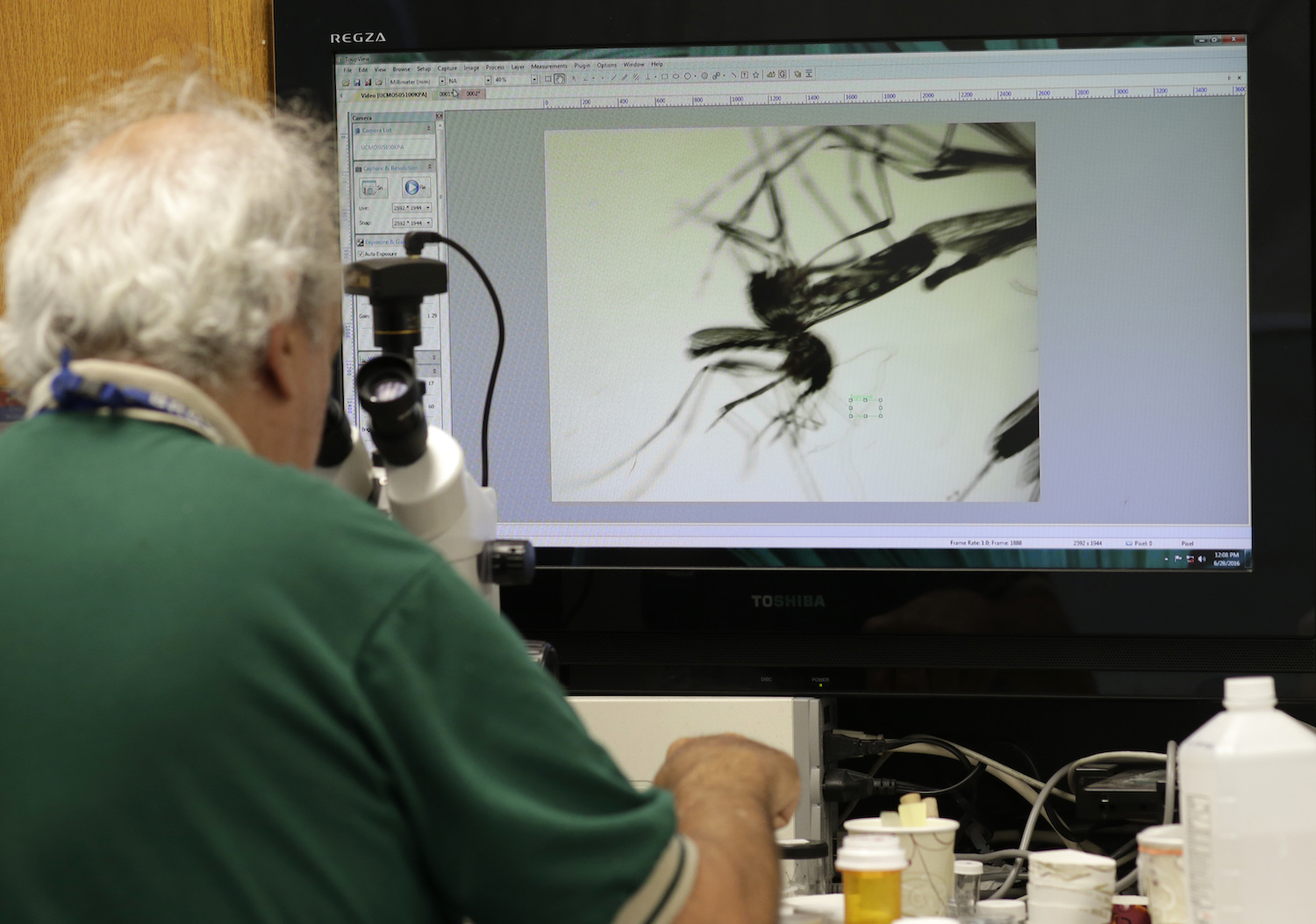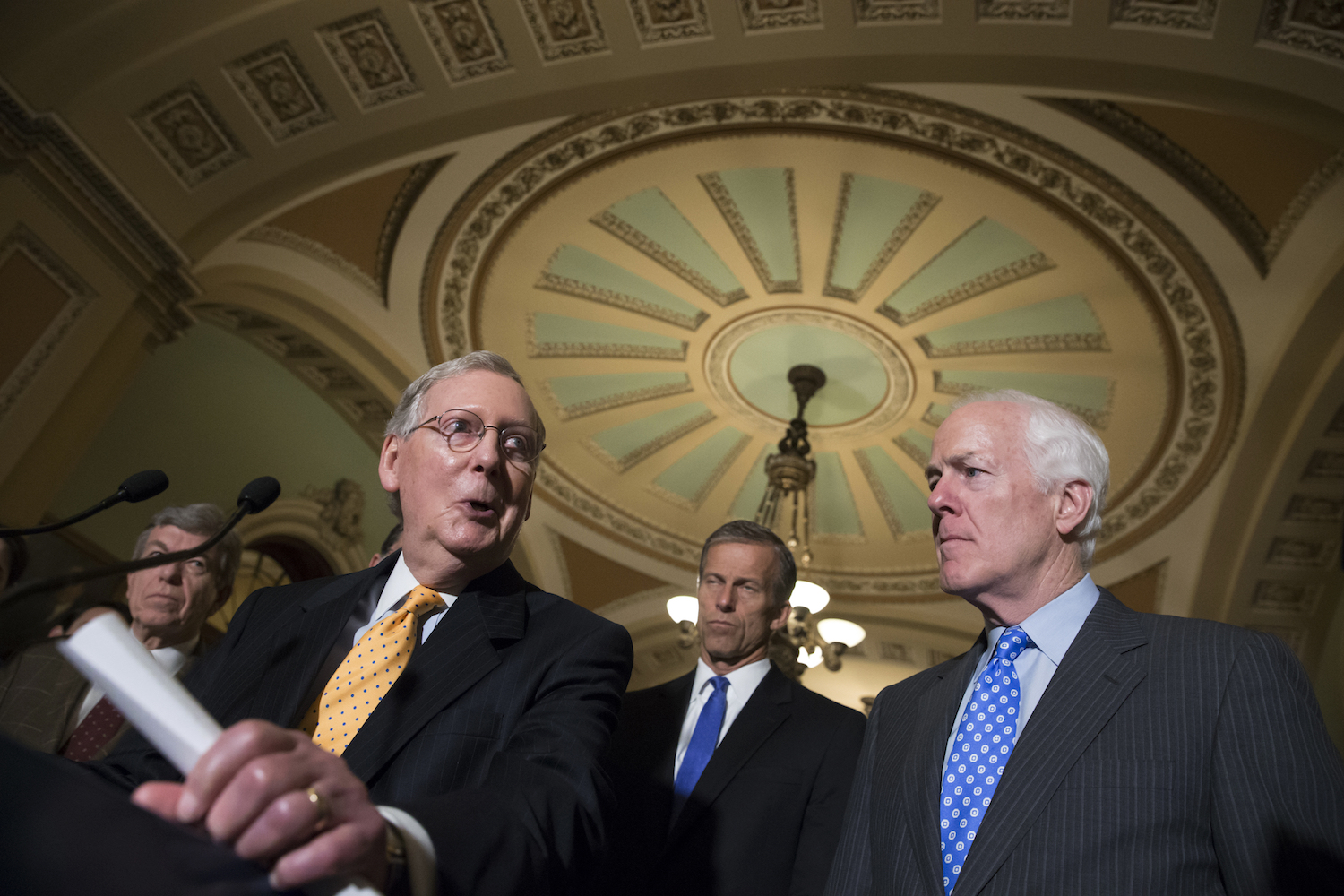Not even the growing summer threat of the mosquito-transmitted Zika virus could break through congressional gridlock over federal spending, which has increasingly paralyzed the legislative branch.
Senate Democrats and one Republican voted last week to block a $1.1 billion measure that would have provided the federal government with funding needed to kill mosquitos and develop a vaccine for Zika, which causes severe birth defects and neurological damage.
The failed Zika bill is among many spending measures that have stalled in Congress over the years as Republicans have become more averse to increasing the deficit while Democrats push for more federal resources without requiring cuts elsewhere in the budget.
The fiscal stalemate has led to years of last-minute funding showdowns and the passage of non-traditional and unwieldy “omnibus” spending packages stuffed with wasteful earmarks.
This time, the fiscal gridlock is over funding to control Zika. And the impasse could have dangerous health consequences.
The Centers for Disease Control and Prevention has warned that $590 million in stopgap funding will soon run dry. The agency will need more money to provide mosquito abatement, treatment and a vaccine, officials said.
The CDC reports that 2,900 people in the United States have contracted Zika, 700 of them in the past week. More than 480 pregnant women are among the infected, and eight U.S. pregnancies have resulted in severe birth defects.
In all of the cases, Zika was contracted outside the United States, but the CDC and other federal health officials warned that mosquito transmission on U.S. soil is imminent.

The Centers for Disease Control and Prevention has warned that $590 million in stopgap funding will soon run dry. The agency will need more money to provide mosquito abatement, treatment and a vaccine, officials said. (AP Photo)
“I don’t have money to move from any other place,” Dr. Anthony Fauci, director of the National Institute of Allergy and Infectious Disease, told reporters last week.
Zika vaccine trials are nearly ready, Fauci said, but he warned they will stall without new money from Congress.
The looming threat wasn’t lost on senators, who in the chamber last week propped up oversized photos of Zika-afflicted babies born with microcephaly and warned of “little shrunken heads … their skulls caved in.”
Senate Democrats nonetheless blocked the Zika-funding measure after Minority Leader Harry Reid, D-Nev., called it “the most irresponsible legislation I have ever seen in my 34 years in Congress.”
Democrats are mostly opposed to the bill because it includes offsets, which are the funds used to pay for the cost of the legislation.
The measure is partly paid for with $543 million in funds taken from a defunct Obamacare program that was supposed to establish health insurance exchanges in U.S. territories. The measure would siphon another $107 million from a fund designated to treat the Ebola virus, which is no longer considered a threat in the United States.

Democrats said they believe the Zika virus constitutes an emergency. Spending legislation to fight the disease should not be taken from government programs, they argued. (AP Photo)
The legislation would move an additional $100 million in “unused administrative funding” from the Department of Health and Human Services.
To avoid adding to the deficit, Republicans planned to find offsets for the remaining one-third of the cost in the fiscal 2017 spending measures.
The plan angered Democrats, who said they believe the Zika virus constitutes an emergency. Spending legislation to fight the disease should not be taken from government programs, they argued. Instead, it should be added to the deficit.
“You can’t have offsets for an emergency,” Reid said after Democrats blocked the bill. Reid warned that it might set a precedent “if we start down that path.”
The bill was written by lawmakers in the House and Senate.
It was sent first to the House, where Democrats voted in unison against the bill. Their opposition was not enough to stop passage by the Republicans, who control the House majority.
In the GOP-led Senate, however, Democrats were able to block the bill because it required 60 votes to advance rather than a simple majority.
Democrats justified their opposition by pointing out so-called poison pills in the measure, such as a provision preventing a handful of Planned Parenthood clinics from accessing new funding for the fight against Zika.
Democrats said they also opposed language that would temporarily lift Environmental Protection Agency regulations to allow mosquito spraying near water, and a provision that would permit the display of Confederate flags in military cemeteries.
Republicans argued that Democrats were using Planned Parenthood and the Confederate flag as excuses to mask the true reason for their opposition.
According to GOP aides, Democrats abandoned the Zika negotiations between the House and Senate only after Republicans introduced provisions to pay for the bill.
“You can come up with every possible made-up reason you want to if you’re on that side of the aisle as to why this is not a good bill,” Sen. John Thune, R-S.D., said after Democrats blocked the bill. “But the bottom line in their case is that it’s about two-thirds paid for and they’d like it not paid for at all.”

The failed Zika bill is among many spending measures that have stalled in Congress over the years as Republicans have become more averse to increasing the deficit while Democrats push for more federal resources without requiring cuts elsewhere in the budget. (AP Photo)
Senate Majority Leader Mitch McConnell, R-Ky., has promised a re-vote on the measure this week, but it is likely to fail again unless changes are made to appease Senate Democrats.
But those changes would draw opposition from Republicans in the House, where there isn’t much wiggle room for altering the measure.
As eager as Democrats are to avoid offsets, many House Republicans are dead set against increasing the deficit.
The legislation would not have passed the House without the offsets, and even those were criticized by fiscal conservatives who said they were a gimmicky way to claim the measure will not add to the deficit.
“We wanted full offsets, which this obviously was not,” Dan Holler, a spokesman for the conservative Heritage Action, told the Washington Examiner.
Holler said the current offsets are “not a fiscally responsible approach” because the federal money shifted to fight Zika was not going to be spent.
Sen. Mike Lee, of Utah, the sole Republican to vote against the measure in the Senate, said he wants more realistic offsets. If the existing offsets are reduced, Lee wouldn’t be the only “no” vote. GOP support would likely collapse in the House and shrink in the Senate.
The House returns from a week-long recess this week. Republicans in both chambers will have to decide what, if anything, to do next with the legislation. Congress adjourns mid-July and is not scheduled to return until after Labor Day.
A top aide to the House Appropriations Committee told the Examiner the future of the legislation at this point is “totally unclear.”

